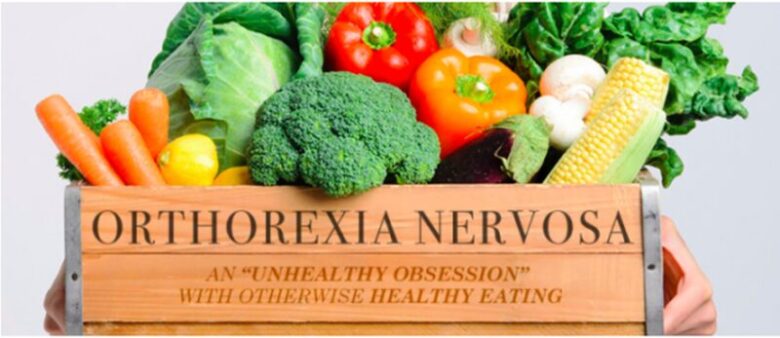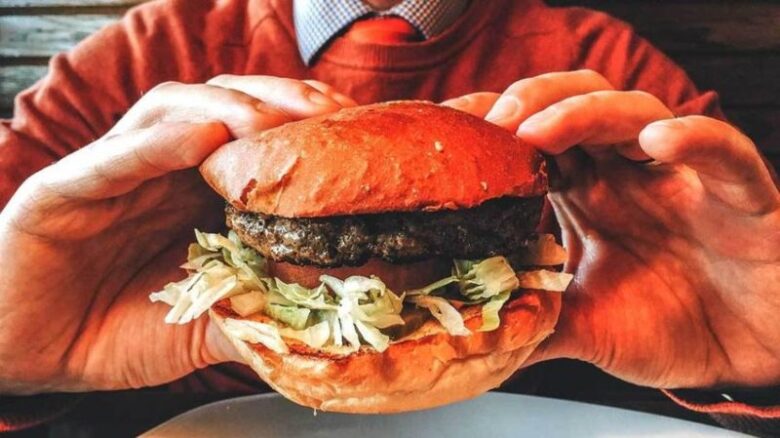People are diagnosed with countless official and unofficial disorders every day. Some of those disorders are related to food. For example, anorexia and bulimia are probably the most commonly known food-related disorders. However, a new food-related disorder has been defined and it’s rather shocking. The disorder is called ‘orthorexia’ and is characterized by an obsession with eating clean food.
You read that right – an insistence on eating clean food is now considered a disorder. Let’s look at how professionals define this disorder.
What is orthorexia?

An article published by The Guardian explains that orthorexics refine and restrict their diets according to their personal understanding of what makes a food pure. Most orthorexics eliminate sugar, salt, caffeine, alcohol, wheat, gluten, yeast, soy, corn, and dairy from their diets. Others eliminate preservatives, artificial additives, meat, meat treated with hormones or steroids, and any produce that came in contact with pesticides or herbicides. They also use supplements, juice their vegetables, and are especially concerned about eating food prepared by others.
The article goes on to explain that the people most susceptible to orthorexia are middle-class, well-educated people who read about “food scares” in the papers, research the incidents online, and have the money to buy alternatives.
At first glance, the article in The Guardian reads like something you’d see from the satirical publication The Onion. However, it’s not satire. The article ends by suggesting all concerns over food are just “grist for the mill” to people looking to confirm unfounded anxieties around food. Disordered eating is more common in people suffering from substance abuse issues, and is often co-morbid with other mental health concerns. If you want to learn more click here.
The source of food anxiety

The article in The Guardian makes it sound like the fear of eating toxins, poison, and carcinogens is unfounded. The article claims people who obsess over eating pure food end up malnourished – as if choosing an organic apple over a slice of heavily processed and preserved apple pie is somehow detrimental to their health. It doesn’t make sense. Eating pure, organic food is the best source of nutrition. Packaged and processed foods are not. The ingredients people avoid have been scientifically proven to be harmful.
Food anxiety is justified – although it’s not always anxiety
Considering the number of harmful additives scientifically proven to disrupt hormones and other bodily functions, people have a good reason to be suspicious and careful about the food they eat. It seems unfair to call this scrutiny “anxiety.”
For example, sulfates can cause breathing difficulties; azodicarbonamide (used in bagels) can cause asthma; and MSG causes headaches and is linked to nerve damage, heart problems, and seizures in animals.
Perhaps it seems like unfounded anxiety because nobody has brought significant lawsuits against food manufacturers. That’s changing rapidly. As of 2019, Monsanto is facing more than 18,000 lawsuits related to Roundup, a commercial weed killer used in agriculture. The company has lost several high-profile cases recently. For instance, The Washington Post reports a married couple was awarded $2 billion by a jury for their claims that Roundup caused their cancer. Many more cases have seen damages awarded in the tens of millions: $78 million in August 2018, and $80 million in March 2019.
There is no question anymore that Roundup is a substantial factor in causing cancer. Monsanto is losing lawsuits because there is extensive evidence they intentionally misled consumers to believe their product is safe. Visit Rosenfeld Injury Lawyers to read more about the Monsanto litigation.
Now all those people with orthorexia who avoid foods contaminated with pesticides don’t seem so crazy after all, right?
Roundup isn’t the only chemical linked to cancer

Among the food additives linked to cancer in humans are:
- Sodium nitrate (used to stop bacterial growth in processed meats)
- Potassium bromate (used in breads)
- Propyl gallate (added to fats)
- BHA/BHT (fat preservative)
- Butane (used in chicken nuggets)
- Sodium benzoate (preservative)
- Carrageenan
- Camauba wax
- Aluminum
One of the worst offenders is brominated vegetable oil. Bromate is poison and can damage internal organs. Unfortunately, it’s not required to be listed on food labels.
Knowing that these (and hundreds more) chemicals and carcinogens are standard ingredients in foods lining grocery store shelves and being served at restaurants, it sounds like food anxiety is well-founded.
What’s wrong with eating chemicals?

Our food supply is contaminated and the food industry is trying to cover it up by inventing a mental disorder to make people who know the truth look crazy.
Not all chemicals are bad, but the chemical ingredients in food are over-the-top. It’s easy to forget that the food you eat literally becomes part of your body. What you eat matters, and if caring about your health means walking around with the label of orthorexic, it’s worth it.


